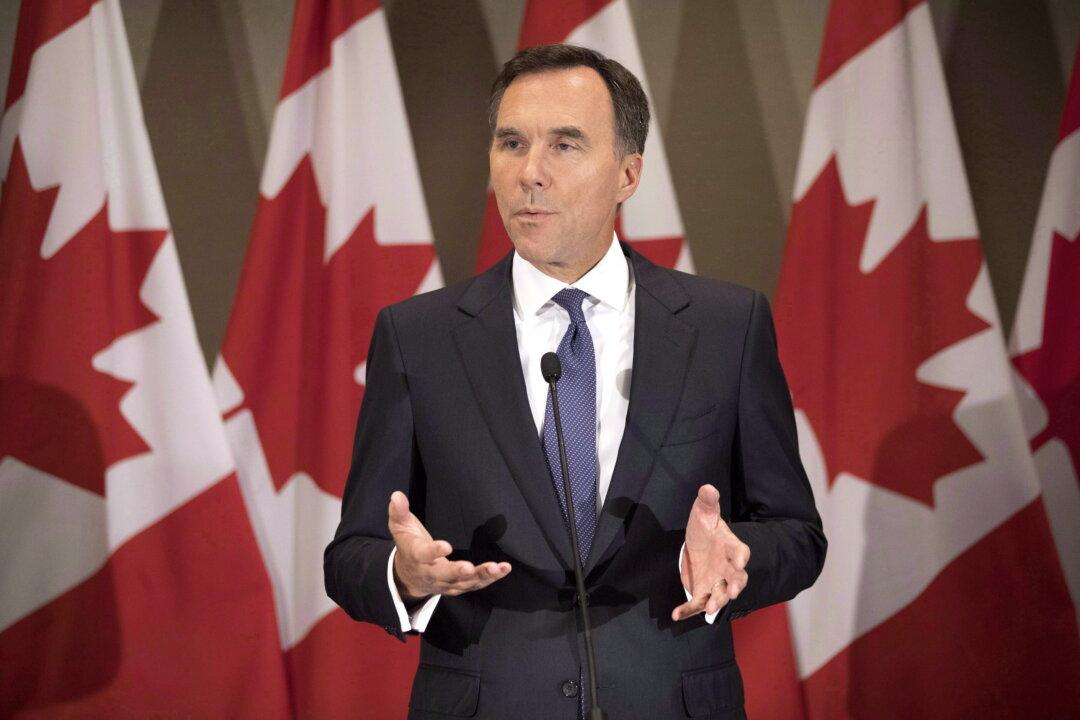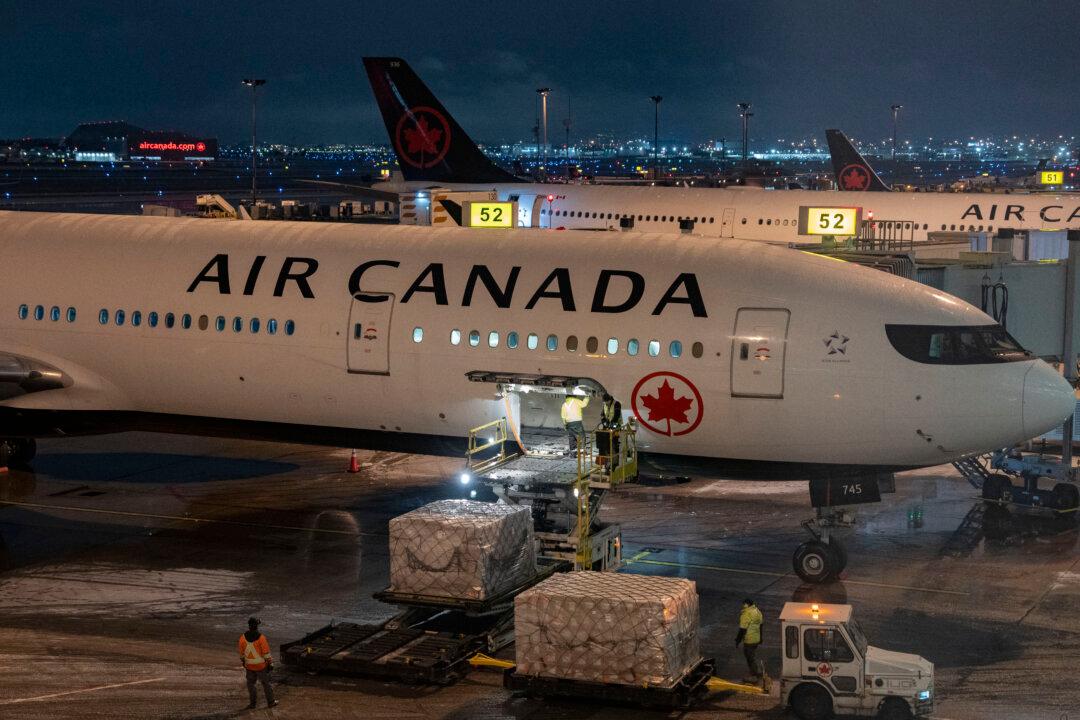OTTAWA—Finance Minister Bill Morneau is looking at targeted measures to enhance Canada’s competitiveness rather than broad-based corporate tax cuts, sources say.
For months, the federal Liberals have been under pressure from business leaders to respond to a U.S. tax overhaul that many warn has put Canada at a disadvantage.
Morneau told reporters this week that he hadn’t ruled anything out when specifically asked whether tax cuts would be part of his competitiveness plan.
But Morneau has been meeting with businesses across the country in an effort to find the best way to deal with the U.S. changes. And sources with knowledge of the federal approach who spoke on condition of anonymity say his emphasis has been consistently on targeted measures.
Morneau intends to announce plans in his fall economic update to bolster Canada’s competitiveness.
The Trump administration’s changes include big tax reductions for businesses and loosened regulations, which have created fears Canada has lost part of its edge as an investment destination.
Industry stakeholders have been calling for lower taxes, but a cut to the federal corporate rate would come at a cost. A tool on the parliamentary budget officer’s website estimates that a one percentage point reduction to the business tax rate would trim about $1.7 billion per year from federal revenues.
There are, however, also recommendations that Morneau consider a cheaper option: allowing all companies to immediately write off new equipment purchases.
The U.S. tax package enables American companies to immediately write off the full cost of new machinery and equipment. Canada already offers this provision for its manufacturing sector and there are calls for it to be expanded to cover all industries.
Some experts believe this kind of measure should be combined with cuts to business taxes.
A study released Sept. 12 by the PwC accounting firm warned the American tax reforms will have a major, negative impact on Canada. They will shift investment to the United States and hurt economic activity in Canada, it said.
The analysis said the U.S. changes threaten 635,000 Canadian jobs, which represents about 3.4 percent of all workers, and could lower Canada’s gross domestic product by 4.9 percent. The report said $20 billion worth of government revenue could also be at risk.
“Canada’s relatively favourable corporate tax environment was a major advantage in terms of attracting new investment,” said the report, which recommends federal and provincial tax reductions among its policy options.
“Due to the U.S. tax reform, this advantage has now disappeared.”
The assessment paints a far bleaker picture than estimates released last spring by the Bank of Canada.
The central bank figured the U.S. reforms could lower business investment by about 3 percent from 2017 to the end of 2020. The bank said this would shave the level of economic growth by about 0.2 percent by the end of 2020.





